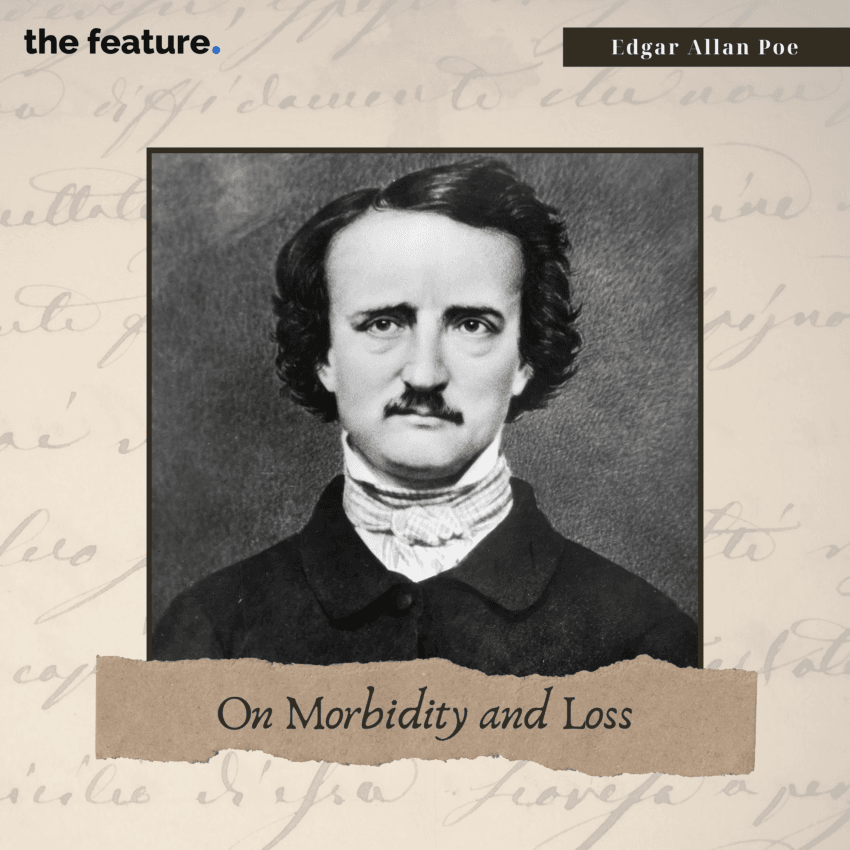“And my soul from out that shadow that lies floating on the floor Shall be lifted—nevermore!”
Edgar Allan Poe, (1809-1849)

With morbidity and echoes of harrowing and grotesque, Edgar Allan Poe is one of the pioneers of Gothic and horror fiction; his tales reflect deep-seated shadows of the psyche and exploration of the unconscious. Orphaned at a young age, Poe’s life was marred by financial and personal tragedies which many believe were reflected in his macabre works. “The Raven” published in 1845 just years before his death is a celebrated and prominent piece of literary verses seeped in melancholy and morbidity.
Renowned for its musical lyricism, the poem explores themes of grief, death, and loss. “And my soul from out that shadow that lies floating on the floor Shall be lifted—nevermore!” suggests how the lingering darkness and emotional burden that the poet carries would continue to linger, to affect him in one way or another. The permanence of grief and sorrow caused by the death of the speaker’s beloved, Lenore encapsulates the tragedy in essence.
The poem is considered a magnum opus of Poe’s creative mastery and insinuates Poe’s literary capabilities which make him the most reputable of American writers, highlighting his poetic intelligence.




